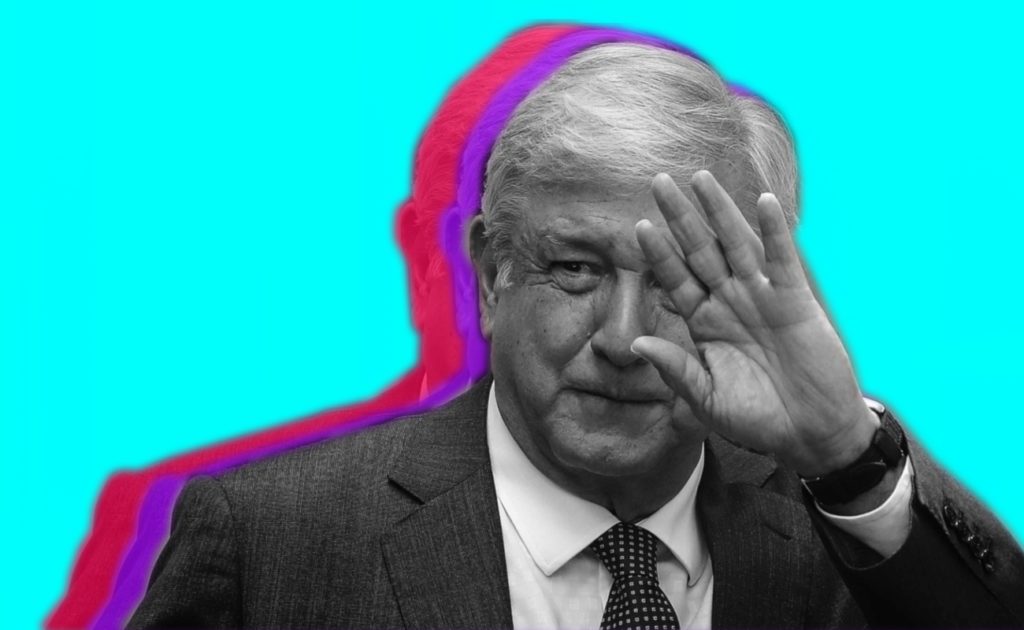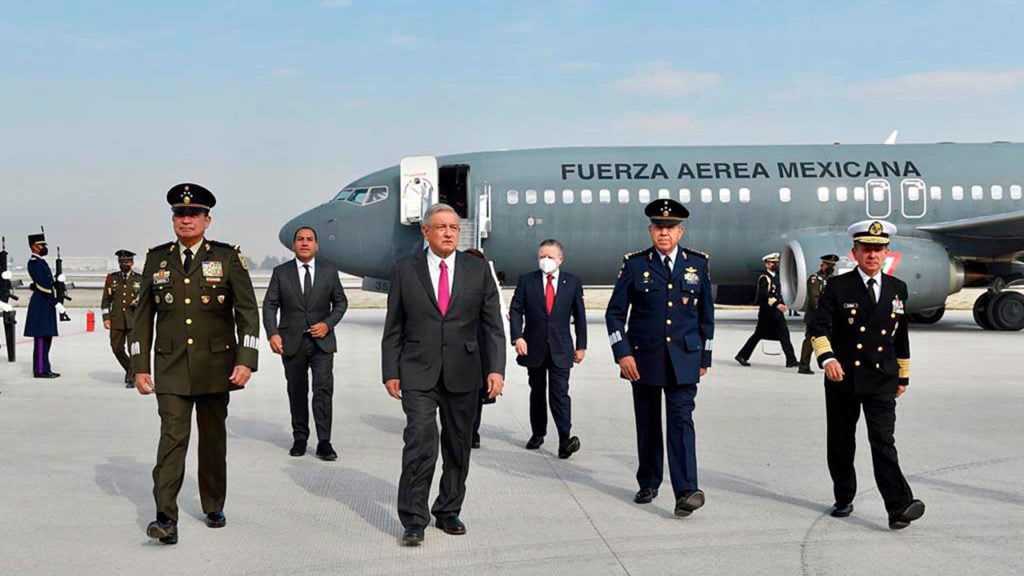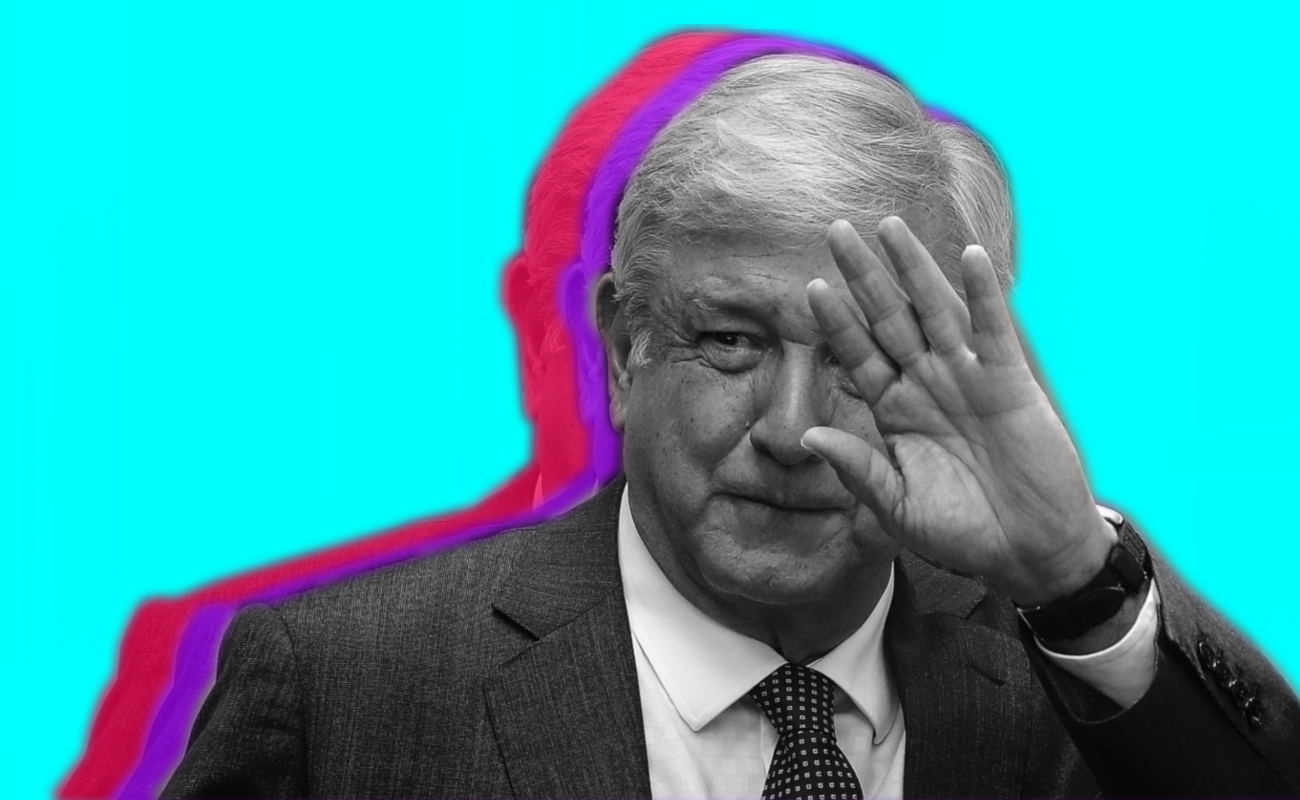Mexico to find out if López Obrador’s authoritarian boast is a rhetorical tactic or a warning about his undemocratic ambitions
By Nathaniel Parish Flannery
April 26, 2021, (FORBES).- In Mèxico, the presidential palace has become the setting for a televised drama. Every Monday through Friday morning, the star uses her pulpit to promote her agenda and lash out at her enemies. Answer questions from friendly reporters, little-known media outlets, and select irritating independent journalists to condemn.
The last few months leading up to Mexico’s crucial midterm elections have been particularly challenging for Mexico’s controversial president, Andrés Manuel López Obrador. In addition to facing the reality that Mexico ranks alongside Brazil and the United States as one of the countries most affected by the Covid-19 pandemic, López Obrador has had to deal with an incessant cascade of minor crises.

In March, Quintana Roo police officers detained, immobilized, and murdered a woman in the middle of a public thoroughfare. Later, the house of the journalist who documented the incident was raided.
In November, a reporter was assassinated in the state of Guanajuato, the 10th journalist to be assassinated in Mexico during the López Obrador government. The Committee to Protect Journalists, a press freedom advocacy group, ranks Mexico as the most dangerous country for journalists in the Western Hemisphere.
An environmental activist was killed in the state of Oaxaca on March 28, the fourth activist killed this year. In all, more than ninety environmental activists have been murdered in Mexico since 2012.
In April, a member of the militarized police force of the National Guard, the Mexican president’s flagship institution, was caught on video beating a woman on the street in Mexico City. In 2020, Amnesty International warned of the National Guard’s troubling record of human rights abuses.
Mexico recorded 36,476 murders in 2019. During 2020, the country continued to record thousands of murders each month, marking the start of the López Obrador administration as two of the most violent years in modern Mexican history. Within Mexico, political analysts are already raising the alarm about the disturbing adoption of López Obrador’s authoritarian rhetoric and his track record on human rights issues.
Mexico’s economy contracted 8.5% in 2020. Struggling to find tangible ways to meaningfully address Mexico’s historic problems while pursuing a self-imposed program of “republican austerity,” López Obrador has doubled down on the divisive rhetoric that he has defined his presidency. He tries to moralize and cajole the country, but he struggles to engineer meaningful political reforms. When critics question your record, you attack them and undermine your credibility.
But, in 2021, as he criticizes the U.S. State Department for meddling in Mexico’s internal affairs, and disparages the respected press freedom advocacy group Article 19 as a partisan adversary backed by corporations, strident rhetoric, and López Obrador’s simple solutions are beginning to irritate.
On April 3, Kenneth Roth, executive director of Human Rights Watch tweeted: “You can see that Mexican President Andrés Manuel López Obrador is having trouble defending his human rights record when he resurrects the troglodyte-era doctrine of not commenting on the human rights of other countries. records. That is the recourse of the dictators ”.
You can tell that Mexican President Andrés Manuel López Obrador is having trouble defending his human rights record when he resurrects the Troglodyte Era doctrine of not commenting on other country’s human rights records. That’s the recourse of dictators. https://t.co/KTLPzzxMDT pic.twitter.com/WFsFPPiEjD
— Kenneth Roth (@KenRoth) April 4, 2021
López Obrador does not see himself as an autocrat. He sees himself as a savior who, alone, is bringing about a historic transformation of Mexico’s government, economy, and society.
In his book El Mesías Mexicano, historian George Grayson explains: “While elements of populism apply to López Obrador, he is in fact a political ‘messiah’ [who believes that] the justice of his cause immunizes him from scrutiny and The attacks”.
The tragic irony is that despite López Obrador criticizing the pistoleer press & media mafia , it is journalists from Animal Político, Nexos, Proceso and other news sites, magazines and newspapers who have helped create unprecedented awareness about political corruption, inequality, violence and other problems. The critical investigative reports that López Obrador is so wary of now actually helped fuel the wave of popular frustration that pushed voters to elect him.

In the 21st century, Mexico’s political arena has been characterized by a new degree of visibility, but it still lacks accountability. The World Economic Forum gives a poor evaluation of Mexico’s institutional capacity, ranking Mexico 98th overall. Mexico scores even worse and ranks among the top three worst performers in the world in terms of the magnitude of the problem posed by organized crime and the reliability of the police.
Transparency International ranks Mexico among the countries with the worst corruption problems, 124 behind Bolivia, Pakistan, Ukraine and Sierra Leone. The public has become increasingly aware of and frustrated by the corrupt dealings between Mexico’s narrow oligarchy of billionaires and the political class.
In 2018, former President Enrique Peña Nieto limped towards the end of his six years in office with an approval rating of just 24%. López Obrador was the candidate who was best able to articulate the very real frustrations that a wide swath of the public felt with the country’s political leadership, and he was also the candidate most capable of promoting himself as a viable alternative. In the election campaign, he deftly adopted a mild form of populism, promising to tackle the long-standing problems of corruption and violent crime while working to catalyze a new kind of broad-based economic growth and development.
Unfortunately for Mexico, nearly halfway through his six-year term in office, López Obrador has focused more on self-promotion than addressing the problems he promised to address. On average, his weekday morning speeches contain 80 lies. He advertises himself and his government, travels, holds Trump-style rallies and press conferences, does public relations for his favorite projects, and tries to establish direct relationships with voters.
The image it projects is popular and socially conservative. Gloriously anti-intellectual, López Obrador’s worst tendencies have been on full display, while perhaps half a million Mexicans have died from Covid-19. He refuses to wear a mask and has repeatedly downplayed the importance of masks during the pandemic. It ignores Mexico’s industrial sector and focuses on delivering cash handouts to rural voters.
He criticizes wind turbines for ruining the rural landscape and promotes Mexican coal as a fuel to produce electricity. He insists his economic agenda will repair Mexico’s social fabric and help reduce crime, but has assigned additional power to Mexico’s armed forces rather than investing in strengthening state and local police forces. She takes a traditional view of the role of women in Mexican homes and refuses to advocate for the decriminalization of abortion.
At the start of the pandemic, he assured the public that families could rely on their daughters to take care of them if they fell ill with Covid-19. “Sometimes they don’t like it very much because, also with good reason, they want to change the role of women and that is one of the causes, it is one of the just causes of feminism, but the tradition in Mexico is that daughters are the most they take care of their fathers, we men are more detached, but daughters are always attentive to fathers, dads, moms, “he reasoned.
Foreign observers struggle to characterize López Obrador. Some television commentators in America mistakenly refer to him as a socialist. Other naive foreign analysts see him demonstrate against “conservatives” and “neoliberals” and embrace him as a modern leftist politician. But even if López Obrador strives to be the antithesis of a “neoliberal”, that does not mean that he is a progressive. He is best understood as an old-school conservative. The question for Mexico is whether it has aspirations towards an authoritarian government.
In her book Cultural Backlash, Pippa Norris, a political science professor at Harvard Kennedy School, highlights the importance of differentiating between populism and authoritarianism. Populists can be right-wing or left-wing in their ideologies and can emerge as a legitimate response to widespread frustrations with inequality, slow economic growth, corruption, and crime. But populist rhetoric opens the door to authoritarian rule by charismatic leaders.
After all, many authoritarians embrace populist rhetoric and position themselves as the legitimate embodiment of the will of the people. Competent reformers who exploit popular frustrations can play a role in strengthening and restoring democracy. But populist leaders can also easily make the leap from disparaging existing institutions to actively working to undermine institutions and concentrate power. Once elected to office, populists will reveal through their political options and priorities whether they have aspirations towards authoritarianism.
And, in the case of López Obrador, his tendencies are alarming. It warns that electoral oversight bodies, antitrust watchdogs, regulatory agencies, open data portals, publicly funded foundations, and independent government institutions have flaws, but proposes to remove and replace them with centralized institutions controlled by their own. ministries.
A populist can identify widespread problems. An authoritarian will point to concentrated control as the best solution. Populists may be inclined to reject institutional checks and balances. Authoritarians demand obedience. A charismatic demagogue who embraces both populism and authoritarianism can quickly become a threat to democracy.
Throughout his political career, López Obrador has displayed a deft populist touch in conveying his message to voters who feel excluded from Mexico’s nascent industrial success, but he has also displayed some troubling authoritarian tendencies. He has spent the pandemic downplaying the virus and promoting the drama of good versus evil his government faces as it works to transform the country. He paints his accomplishments as miraculous acts in the face of unwavering opposition. His narrative reduces all criticism to complaints of an undifferentiated movement of illegitimate adversaries, rather than the organic concerns of ordinary citizens.
Like other populists, he can cleverly identify the problems that affect and disturb the public. But he follows an authoritarian playbook when he adopts a harsh “with us or against us” speech that stifles debate and marks all dissenters as not only wrong but illegitimate and unworthy of engaging in public discourse. López Obrador will not tolerate criticism from feminists, environmentalists, human rights activists, or the media. After all, only a messiah can claim to have monopoly control of the truth.
Some of their struggles can be attributed to arrogance, incompetence, ignorance, or inexperience. But what is worrying about López Obrador is that he demands adulation and ideological conformity from his allies and supporters. Shows little interest in learning from their mistakes. As a leader, you have a relentless and unwavering focus on consolidating power and little ambition to wield the power you already have.
López Obrador chooses to rage rather than compromise. Avoid the difficult process of reforming and significantly strengthening Mexico’s institutions. Almost three years since he was elected to begin his historic presidency, López Obrador continues to campaign rather than govern. Perhaps once half of the June terms are over in Mexico and López Obrador will be able to take stock of his relative power and make a decision on how he will choose to manage his strategy during the second half of his six-year term.
Mexico will discover whether his authoritarian boastfulness is simply a rhetorical tactic or if it is a warning about his undemocratic ambitions. Will you finally turn your attention to engaging in meaningful political reform, or will you begin to argue that you need more time in office to achieve your agenda? In 2021, Mexico will begin to see if President López Obrador aspires to be Latin America’s next autocrat. Or are you just content to play one on television?
Mexico’s #AMLO’s foibles & imperfections are dismissed 1 by 1 by his supporters, but taken together, his vision is worrisomely anti-democratic & authoritarian, a regression from the progress ?? has made in consolidating democracy over the past 50 years. https://t.co/2kawFYFusn
— N. Parish Flannery (@NathanielParish) April 19, 2021

